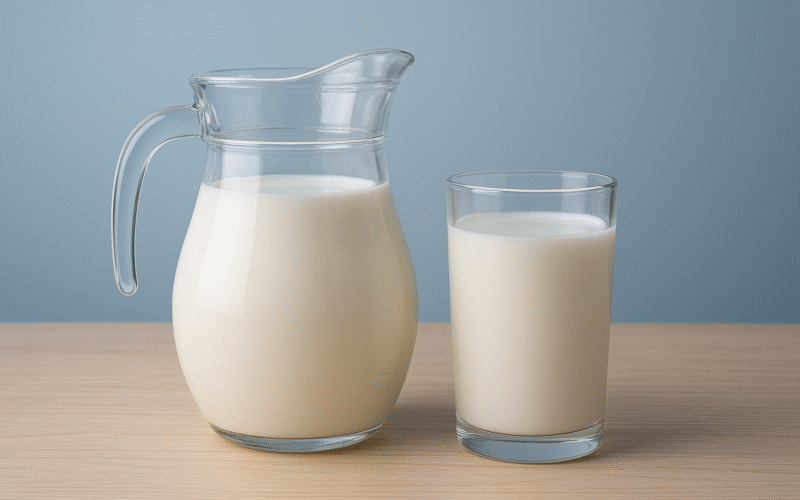Milk is a vital source of nutrition, but not all milk is the same. The major types are A1 milk and A2 milk, classified based on the beta-casein protein they contain.
What is A1 Milk?
Produced by Western cow breeds (Holstein, Jersey, Friesian).
Contains A1 beta-casein, which breaks down into BCM-7 peptide during digestion.
BCM-7 may cause allergies, bloating, digestive issues, and has been linked to health risks like diabetes and heart disease.
What is A2 Milk?
Produced by Indian and African breeds (Gir, Sahiwal, Rathi, Kankrej, Malnad Gidda).
Contains A2 beta-casein, easily digestible and does not release BCM-7.
Rich in omega-3 fatty acids, vitamins A & D, potassium, and magnesium.
Known to improve digestion, immunity, heart health, and brain function.
Why is A2 Milk Expensive?
Produced only by selective Indian breeds.
Requires genetic testing to confirm purity.
Lower yields than exotic breeds, making it premium.
Creamier texture, more nutrients, and doctor-recommended for children, pregnant women, and even lactose-intolerant people.
Taste Difference
A1 milk: Contains BCM-7 → heavier taste, harder to digest.
A2 milk: Free from BCM-7 → milder, sweeter, and smoother.
Quick Comparison Table
| Feature | A1 Milk | A2 Milk |
|---|---|---|
| Source | Western breeds (Holstein, Jersey) | Indian breeds (Gir, Sahiwal, Kankrej) |
| Protein | A1 beta-casein | A2 beta-casein |
| Digestion | Causes discomfort for many | Easily digestible |
| Health Risks | Linked with diabetes, heart disease | No adverse effects |
| Nutrition | Lower nutritional value | Rich in omega-3, vitamins & minerals |
| Cost | Cheaper | More expensive |
Conclusion: If you want milk that’s easier to digest and healthier, A2 milk from Indian breeds is the better choice.

